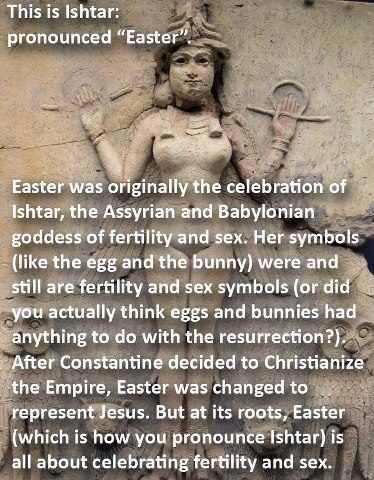It is always particularly disappointing when those who classify themselves as freethinkers and skeptics share nonsense. This image is making the rounds again in precisely those circles:

Candida Moss has a great article on what is problematic both with such claims about Easter being borrowed/stolen in this way, and with the reverse, namely Christian claims that everything about Easter is unique, unprecedented, and unparalleled.
The gullibility that allows one to fall for a meme like the one above without fact checking is characteristic of mythicism. Harry McCall posted (and since it wasn’t April 1st, I genuinely think he meant it to be taken seriously) that we have evidence of dinosaurs existing 66 million years ago, but no solid evidence of Jesus existing a mere two thousand years ago.
Can he really think that that is a serious argument? How many specific people do we have hard evidence of from 2,000 years ago? How can he think that evidence for the existence of a category of organism is comparable to evidence for a single individual? Is he not aware of how many species must have existed even though we lack solid information for them? Is he not aware of how rarely we have solid evidence for anyone other than the wealthy upper echelons of the society of the ancient world? Is he not aware that simply setting aside texts as evidence ought to mean discounting inscriptions, which would deprive us of clear evidence about any single specific individual?
Easter is a season when critical thinking and information literacy are frequently discarded, both by Christians who use illogical and unpersuasive arguments that they claim can prove the resurrection, and by opponents of Christianity who think that any anti-Christian claim ought to be given credence merely because it is saying something uncomplimentary about Christianity.
I hope that those who consider accuracy important will use the opportunity of Easter to spread the good news that being part of a community – religious, areligious, or anti-religious – need not mean falling for tricks and deceptions.












